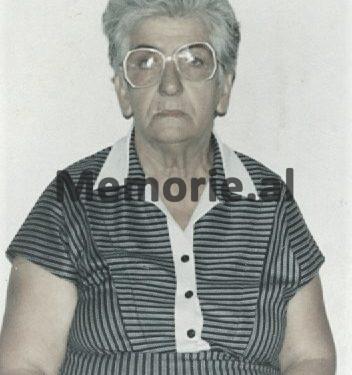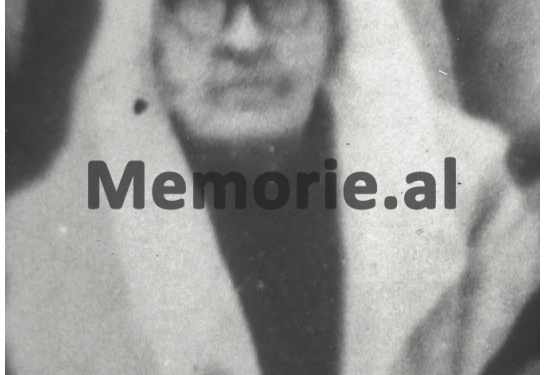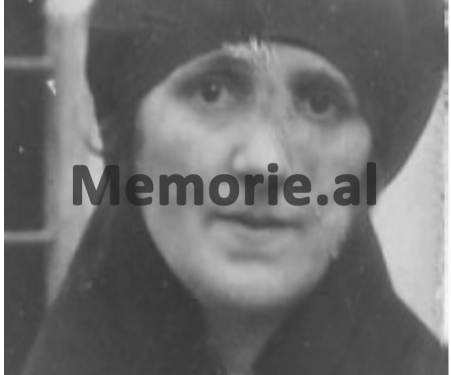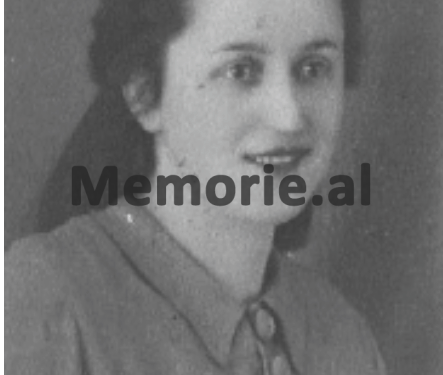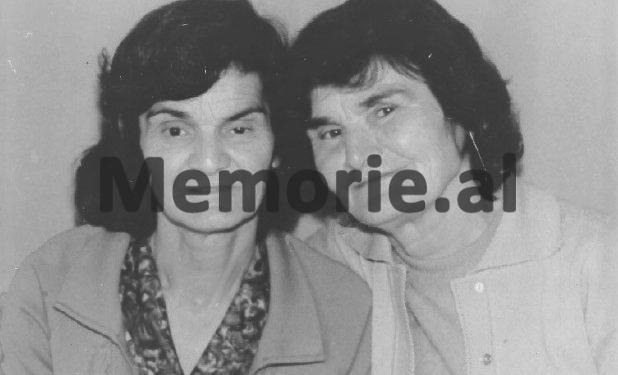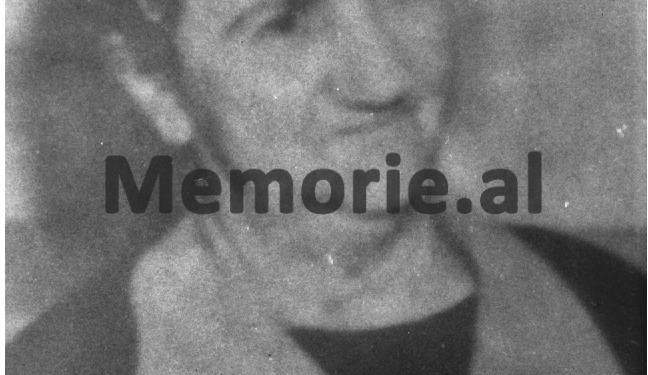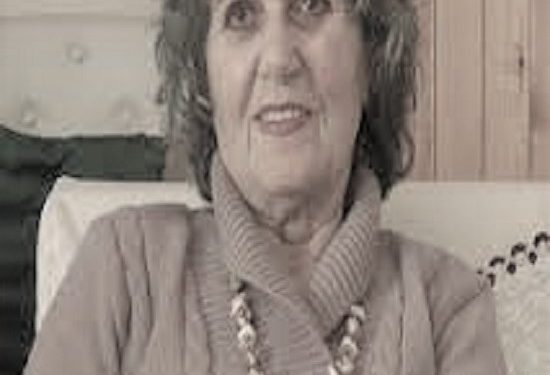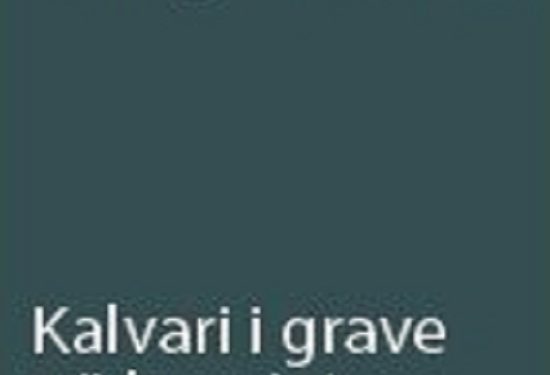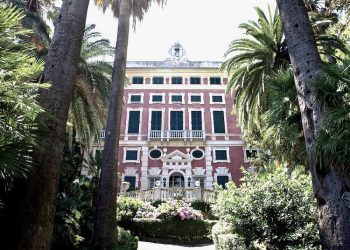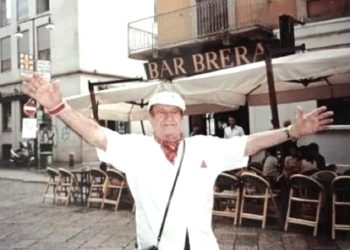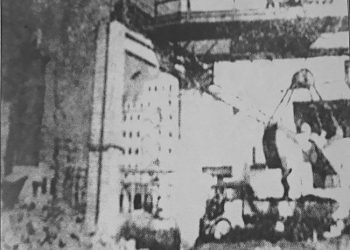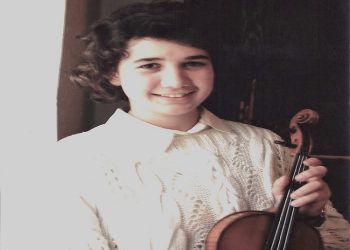Fatbardha Mulleti (Saraçi)
The fourth part
Memorie.al publishes some parts from the book ‘Calvary of women in communist prisons’, by Fatbardha Mulleti Saraçi, (granddaughter of the famous former mayor of Tirana, Qazim Mulleti), whose family from 1944 until in 1991, he was persecuted by the communist regime of Enver Hoxha, where Fatbardha’s father, Haki Mulleti, a former senior state administration official since the 1920s, was imprisoned and interned by his family, until died in the hospital of Tirana, poisoned by the State Security. In her book ‘The Calvary of Women in Communist Prisons’, which is the fruit of several years of work, the author has masterfully described the unknown stories of some of the Albanian women and girls who suffered in prisons and internments in the dictatorial regime of Enver Hoxha, started by her mother, Pertefe Mulleti, and in turn: Marie Deda, Hajrie Kazazi, Kushe Seknej, Mrike Pali, Zyliha Rusi, Roza Jakova, Fatime Dilaveri, Hatixhe Pipa, Marije Gjoka, Angjelina Topalli, Hatixhe Kopliku, Nafije Kop Bushati, Budije Bushati, Adile Kazazi, Antonela Dostanishta, Nafije Stërmasi, Luçije Saraçi, Adile Meta, Qeuthere Meta, Feride Damnori, Vitore Ashta, Fetije Vuçiterni, Zehnije Gjylbegu, Xhyhere Kazazi, Luçije Malaj, Leadije Kazazi, Sadije Kazazi Hava Repishti, Luçije Kurti, Rukije Bushati, Shaqe Logoreci, Qamile Myftija, Marie Ndokëllia, Rozë Çefa, Çile Staku, Shaqe Marku, Lajde Arapi, Lutfije Barbullushi, Syme Muka, Zenepe Kraja, Fahrije Kazazi, Naxhije Plari, , Lizë Vukeli, Bade Kjaraj, Hava Baçi, Xhehadire Boriçi, Vitore Kalaj, Katerina Benusi, Sofije Baja, Lenë Pjetri, Dava Markagjoni, Mrika Markagjoni, Marta Gjonmarkaj, Bardha Gjon Markagjoni, Kristina Gjomarkaj, Çelestina Pervizarki, Kune Miraka, Sultana Dine, Vera Dine, Agime Dine, Hamide Çela, Vera Dine, Kadrije Cami, Sanije Sulaj, Meliha Sulaj, Vashe Kola, Prena Llesh Gjeçi, Gjystina Seku, Ilda Melgusha, Agime Pipa (Aranitasi), Terezina Pali, Liza Pali, Adile Boletini, Nasibe Kazazi, Ana Daja, Dila Zef Ndoja, Zyraka Mano, Shanisha Dosti, Zojë Gjeloshi, Drane Stakja, Elena Luli, Sabiha Kasimati, Marije Deda, Marije Shllaku, Biçe Pistulli, Sadije Kazazi, Gjyzepina Çoba, Marta Doda , Frida Satedini, Vitore Kuka, Gjela Llesh Biba, Bardha Cub Marku, Liza Llesh Mali, Bardha Mark Bushkola, Marije Tuci, Olimbi Baruti, Angje Kovaçi, Bedrije Ashikja, Musine Kokalari, Motër Gjeorgjina, Liljana Radovani, Laura Keqi, M Mrike Zadeja, Angjelina Shantoja, Naime Koçi, Sheriar Sefa, Vitore Shllaku, Liza Gjon Voci, Nina Shiroka, Laje Mehmeti (RRema), Feride Beshiri (Quku), Hasije Ulqinaku (Quku), Sofije Kali, Çile Gjush Larja, Nurfezo Koprencka, Sanije Gjylbegu, Emilja Shest Bregu, Vida Radovani, Nedrete Pipa, Motrat e Osman Kazazi, Safete Jusif Sokoli, Çiljeta Simoni, Lutfije Buashati, Sadije Bushati, Olga Schëeizer Libohova, Evelina e Ndoc Naraçi, Geraldina Apony-Zogu, Hilda Zyma. Marie Rafael, Zade Muka, Rukije Bushati, Hajrie Vrioni, Emine Gjyrezi, Xhemile Beqir Komi, Hedije Dume Repishti, Syme Muka, Fetije Vuçiterni, Sebije Puka, Marjeta Serreqi, Dhurata Sokoli, Klara Miraka (Merlika), Asi , Liri Cenaj, Rudina Dema, Adelajde Miraka, Drane Jakja, Syriha Hasi, Aishe Gogaj, Luçija Kaçaj, Gjyljana Malaj (Pervizi), Nadide Kasaruho, Nadire Kërçiku (Peshkëpia), Shpresa Ballolli (Merdani), Makbule Frashëri, Misly Çrash Dervishi (Leka), Natali Arkandi Rozengolc (Pengili), Vigelmina Vitalij Kovaleshko (Veshi), Rukije Rama, Tefta Tasi, Liri Lubonja, Kozara Kati, Shpresa Ngjela, Vera Bekteshi, etc.
Continued from the previous issue
Angjelina Topalli
(1927)
It is better known to the people by the surname Kastrati. It can be said that during her life, she did not wash her face with water, but with tears. Her life was inseparable from that of her mother, and the life of these two unfortunates was so closely connected with Luigj Kastrati, their son and brother, shot by the communist regime, because he had participated in the armed Anti-Communist Movement of Koplik. In January 1945.
Is there a pen to describe the moment when a mother and daughter took from prison the shirt with blood stains and the bag of food, on the inside of which the skin of the legs was glued … with flesh?
They would have to endure even more than that. It was March 25, 1946. Early that morning, near their house, the words “Farewell, mother and sister!” Were heard. That cry was heard from the cages. The call was issued by the truck leading to the execution of 14 convicts. After a while, the hail of rifles was heard. Shkodra was accustomed, now, to waking up to those ominous gunshots. Women and girls, old men and women, men and children, with their hair raised in horror, with focused gazes towards an imaginary point, waiting to be concretized, rushing towards the place they knew from other times: towards the tombs of Rëmanji , lest among the slain there was any of them. With them also those two fortunes. See the corpses. At first they do not distinguish anything. Instinctively he says: “Yes, woe to their mothers!” Then … only then did a shout in two tones rumble, which came out of all the cells, a terrifying rumble that shook everyone. There, among others, was he. They go to him to hug him for the last time, but do not leave the guards. Then, in the midst of the choir of mourners, they, like lions, clash with them. They later learned that the bullets had not hit him at first, so they shot him in the back of the head.
From that moment, the mother and daughter parted. The old woman’s house became the place where her son’s life was cut short. Day, night, in oil. Until he died, after 8 years. It was 8 centuries, maybe more…!
For Angjelina, now the decades of exile would begin, always in remote areas, without ever having the right to come to Shkodra, without ever having the right to cry in that place, as her brother’s grave would not be taken find out where he was. A life of ours, with two pools of tears instead of two eyes.
He hated communism all the time. He was nourished by the indescribable pain of his brother and mother. She expressed herself in verse, in many verses.
Hatixhe and Nafije Kopliku
(1896-1975), (1899-1950)
These worthy descendants, respectively daughters of the Bushatlinj and Bilal family, became brides and established their own nurseries in the Koplikej family, two sisters-in-law of origin and place of arrival with hospitable and nationalist traditions. There is nothing more beautiful! This was seen especially during and after the war.
- Shkodra was probably the city where communist savagery appeared most openly and harshly. The prisons were full of nationalists. Others were on the lookout. Among them is Jup Kazazi, who finds refuge in the Koplikej family, with his uncles, like his brother, Seiti, who was sheltered elsewhere. The connections between them will be made by these two sisters-in-law and the children of the owner of the house, Rifat.
- Postriba’s armed anti-communist movement failed. Security, after making sure that in that house was the nationalist and anti-communist settled, Jup Kazazi, surrounds him. The resistance of all family members has no description: “No, in our house, there is no one else but us.” Then they all line up against the wall, under the threat of their muzzles, which from time to time shoot in the air: “We will kill you all!” This is how I unite: men, women and children do not show. In these circumstances
Jupi kills himself. It was September 17th.
The family is sent to the Security dungeons, to extract from them the connections between the nationalists. Silence again.
The hearts of mothers and daughters were tormented. This word reflected the moment too much. This is how the man was sentenced to death: his husband, Rifati, to death, his son, Ahmeti, who had just turned 17, at the age of 20, and the other son, only 15 days old, even though he was only 15 years old; second brother, Shyqyriu with 5 years.
The hearts of the two young brides were killed, but they were also mobilized to face the dark future. It was not only the bread that was to be provided for themselves and their children, but also the hope that was to be given to the prisoners.
Strength was found in pain and love. And this force kept Ahmeti in the mud of Beden, Orman Pojani, Rrogozhina and Shyqyrina in Shkodra prison. The brides worked with their dexterous hands, especially the hundreds for the young brides who would get married…! Eh, once they had hundreds for themselves..!
Nafija died young, leaving her unemployed husband and pensioner as well as her two daughters, who continued to seduce…!
The smile seemed to freeze, until it melted from the chirping of the little birds, grandchildren that filled the house. Even though they continued to be seen everywhere in the ruling circles with evil eyes, even though they did jobs that were very little rewarded. Only Sarija, Rifat’s daughter, continued the Pedagogical school, of course to be contingent on the remote areas, until she too was fired because of her biography. She was forced to try her hand at work, too, until she died young. The prisons that this family suffered cannot be forgotten, especially by those who suffered. From the depths of their souls came the verses:
“It simply came to our notice then. And the mercy of our women in the ordeal, where the longing grows, which my mother did not quench, still binds us to the world.
And if a ray of joy trembles for a moment these gravestones, it is the baby’s laughter that falls on us … ”!
Vehbije and Budije Bushati
(1908 – 1975), (1924)
It was not said that they should enjoy life. Two sisters-in-law, like two sisters, perhaps more than that, experienced communist ordeal for several decades.
They were married to Sheuki and Qazim Bushati, so that the two nationalists would meet in Shkodra. Sheukija was a member of the ‘National Front’. As such, they were political opponents of the red regime, which was established after the War.
What happened to these two young brides?
Budija had just given birth to her first child.
“How happy I was,” she says, “when my son was born in November 1944, but how difficult it was for me to go and meet my husband in prison with my 6-week-old child: a little later my child died, I lost hope.” alone. I remained a cuckoo. All I had to do was work so that I could help my husband, who especially needed medicine. And to think that the journey was extremely difficult. “We were immediately aware of the dangers of the strikes we were carrying out, that we were going to political prisoners, so people, of course out of fear, avoided us most of the time with regret.”
Thus, the 23-year-old bride remained in the husband’s family and cohabited with Vehbien (Baja), whose husband had been shot. The regime was not satisfied with that, but took them out on the main road, in the rain. Everyone was afraid to approach them. Only one villager from Rrashkulla e Gruemira, took the courage to shelter them, not a little, but 20 years. He did not back down even when they pressured him to leave the house. Later they settled in the village of Mjedë.
All the while, the meager income from working in agriculture was barely enough to support them. Even so, they had to save money so that Sheukija, who later came out of prison very ill, and Shyqyrija, their brother-in-law, could be helped. They came to town with permission, just to buy bread (God, how expensive it was and how hard it was to get it), or to see Sheuki in the hospital.
Budija’s children, very good students, were not allowed to continue school. They were even monitored. One, Safeti, recalls: “I was in the artistic group of Mjedë School. The teacher was from Shkodra and had me sing along with the group. How I was killed when, in the eyes of the teacher, I was kicked out of the group. “We had no right to sing.”
Thus, these two brides, who grew old and aged together, lived in harmony and love and, thanks to this, survived, gaining the respect of all.
Adile Kazazi and her daughters
(1907-1959)
The life of Adile Kazazi cannot be thought of in isolation from that of her husband, Abdullah Kazazi, and their five daughters. Happy family until 1944, so unhappy after this time!
In 1946, Abdullah Kazazi was arrested on charges of participating in the Postriba Anti-Communist Movement. For the dictatorial regime, this was the golden age of liquidating its political opponents. In prison, one day, a policeman says to him: “With this rifle I killed your nephew, Halit”! Thus, the tyrant attacks him, but falls to the ground from a blow with the butt of the rifle. He can no longer stand on his feet, because his spine was broken. The desolate woman, the desolate girl (the eldest 20, the youngest 4 years old). They wanted to meet their lover in prison, but they would not let them. They only took bloody clothes from the prison, to leave them … with tears. Until one day they find out that 17 others were shot. Where did the poor woman and the girls cry when she did not know the grave? The second daughter, Syria, is seriously ill, how can she be treated, how can she be fed to defeat the serious illness? Another nation: she also dies. Two within a year. The black mother’s heart just suffered. And so he endured, endured, prayed and prayed, hoping for a white day…
Girls (Nebia, Gjylija, Remzija and Fejzija) are hired. You had to live…! For them there was only manual labor; where to be further away, where to be more difficult, where to earn as little as possible: in agriculture. How much in Qaf-Hardhi, how much in Trush, how much in Bajza, how much in Aliej, sometimes in Shtoj and sometimes in Bardhej. Our hours on foot: go, work, and come, winter through the mud, summer through the dust, in cold and hot. Sometimes in threshing and sometimes in harvesting, sometimes in digging holes and sometimes in planting tobacco. From breakfast to dinner. Bread and blood. With clenched teeth.
He accompanied Mother Adilja, without whitening well, and waited for them late in the evening, with their heads bowed, together, with broken hearts. EverydAy. For our years. For them there was no school to continue, for them there was no praise, for them there were no rewards. Silent, depressed, despised, abandoned and trampled by the regime, but also honored by the common people, who also suffered.
Poor mother just groaned, her heart just pounding. Until he rested. So suddenly. Alone at home, no one nearby. That’s how the girls found it …! It was 1959, the 15th year of the dictatorship, which was about to celebrate with tam-tame, the jubilee anniversary of its bloody rule.
Back at work, in slave labor, until retirement. Without enjoying life. Two of them childless. Always under Security surveillance. But always very good and hardworking, wise, honest and respected by the accomplices, always with the hope in the heart for the establishment of democracy.
Antoneta Destanishta
(1913 -1987)
When the “witches started getting married”, Antoneta, or Nineja, as she was popularly known, together with her four children, is loaded into a truck by the State Security and travels towards the unknown…! It was, in fact, an exile that thousands of families would experience, simply because their fathers, husbands, or brothers thought differently from the communists. Four children, the youngest 5 years old, in the cold of January 1945, with their eyes wide open in wonder. Maybe it seemed like a game to them. That young children like to get in cars. We all know it from our own lives. What about the police officers who accompanied them, what did they want, because they, we know this, did not love them so much…!
The Destanishta family was being interned. The cause? The owner of the house, Gjon Destanishta, a former gendarmerie officer, with the establishment of the communist dictatorship, had “flown” to his nursery, in the mountains of Dukagjini, to organize the popular resistance against the newly established regime. Killed and remains vorrhumbun, 25 years of exile (1945-1970).
First in the labor camp in Berat, then in Kuçova, in Tepelena and finally in Savër. From the hail to the rain, to be surrounded by armed guards. Freedom of movement only within the camp sector. Special permission from the Department of Internal Affairs, for any other movement. In extremely rare cases. Most of the internment, in Savër, a village in the district of Lushnja. This village is mentioned for two things in its history: six centuries ago, where the Turks had fought the first war in Albania (“where the Turk tramples, not the grass”) and second, it is mentioned as the cursed place for thousands of political opponents of Enver Hoxha. Sheet metal covered shed. In a shack- two families. Mud and water in winter, dust and drought in summer. Twice a day appeal: morning and evening. In long lines, so, torn by the fatigue of the day.
Antonetta’s children continue to remember their mother’s efforts, and then their own, to secure bread. And she did not come out. And then, after working hours, at night under the light of the candlelight, he would knit sweatshirts against the two rations of bread, which were instantly swallowed. The work of the “command” (keeping wood, water, etc.) is not counted.
Everyone remembers Nina for her great courage to survive. Surprisingly, the internees developed a sense of humor. And he was so sharp. With it they coped with daily stresses. They even said: “You, there, are more difficult than us, because we know the world, that we are isolated, and you are isolated among people, because you have to be very careful.”
After 25 years, he returns to Shkodra. They put them in a ground floor room of their house, because the upper floor was occupied by some “cadres”. The mother was bent on the seventh, but not the character. And when the Security wanted to recruit her son, she said: “We were in danger, but it was better for us to honor them inside, than to shame them outside!”
It stayed that way until he closed his eyes forever, leaving you with the memory of a heroic woman. Memorie.al
The next issue follows




